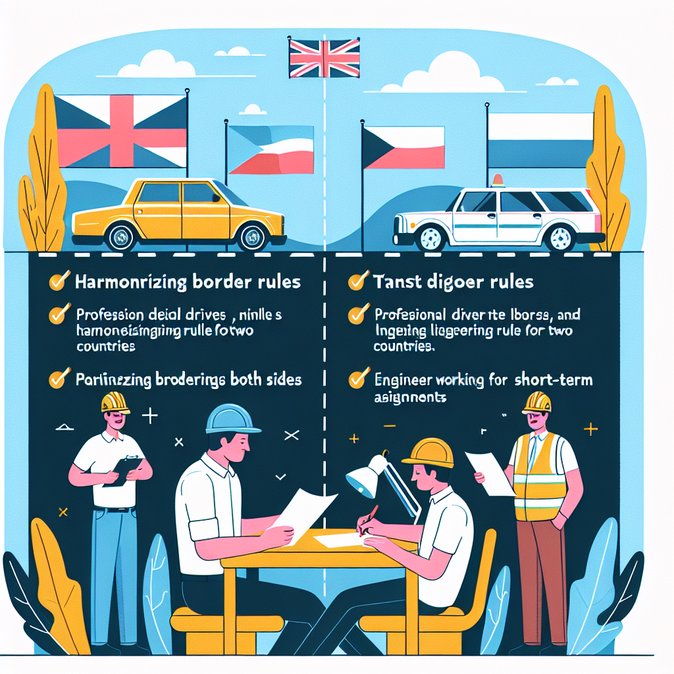
Czechia’s Ministry of Transport and the United Kingdom’s Department for Transport inaugurated a bilateral “Transport Dialogue” in London on 22 November, setting out a five-pillar work plan that ranges from smart vehicles to high-speed rail. Buried in the technology rhetoric is a clause of keen interest to global-mobility professionals: both governments commit to streamlining border procedures for professional drivers and freight operators once the EU’s new Entry/Exit System (EES) is fully functional in 2026.
The dialogue gives logistics companies running UK–Czech supply chains an official forum to raise everyday mobility pain points—cabotage restrictions, driver-licensing recognition and customs delays—that intensified after Brexit and the pandemic. A joint working group will meet quarterly, alternating between London and Prague, and will feed industry feedback directly into EU–UK regulatory talks.
![UK–Czech Transport Dialogue Promises Smoother Border Processes for Drivers and Freight]()
For Prague, the accord dovetails with the forthcoming National Transport Strategy 2035 and its €20 billion high-speed-rail programme. British engineering consultancies such as HS2 Ltd and Arup are expected to bid for signaling and PPP advisory work, opening the door to short-term assignments for UK specialists in Czechia. Conversely, Czech startups in autonomous-vehicle software see the new dialogue as a fast-track route into UK pilot projects.
On the compliance front, the pledge to coordinate border processes could translate into dedicated “green lanes” or trusted-driver schemes once EES biometric checks become mandatory at all EU external borders. Mobility managers should monitor consultation papers in early 2026 and be ready to nominate corporate representatives who can shape practical implementation.
Action point: logistics and HR teams should prepare position papers highlighting driver-mobility hurdles—especially around visa lead times and equipment carnets—so they can influence the first working-group session scheduled for March 2026 in Prague.
The dialogue gives logistics companies running UK–Czech supply chains an official forum to raise everyday mobility pain points—cabotage restrictions, driver-licensing recognition and customs delays—that intensified after Brexit and the pandemic. A joint working group will meet quarterly, alternating between London and Prague, and will feed industry feedback directly into EU–UK regulatory talks.

For Prague, the accord dovetails with the forthcoming National Transport Strategy 2035 and its €20 billion high-speed-rail programme. British engineering consultancies such as HS2 Ltd and Arup are expected to bid for signaling and PPP advisory work, opening the door to short-term assignments for UK specialists in Czechia. Conversely, Czech startups in autonomous-vehicle software see the new dialogue as a fast-track route into UK pilot projects.
On the compliance front, the pledge to coordinate border processes could translate into dedicated “green lanes” or trusted-driver schemes once EES biometric checks become mandatory at all EU external borders. Mobility managers should monitor consultation papers in early 2026 and be ready to nominate corporate representatives who can shape practical implementation.
Action point: logistics and HR teams should prepare position papers highlighting driver-mobility hurdles—especially around visa lead times and equipment carnets—so they can influence the first working-group session scheduled for March 2026 in Prague.








